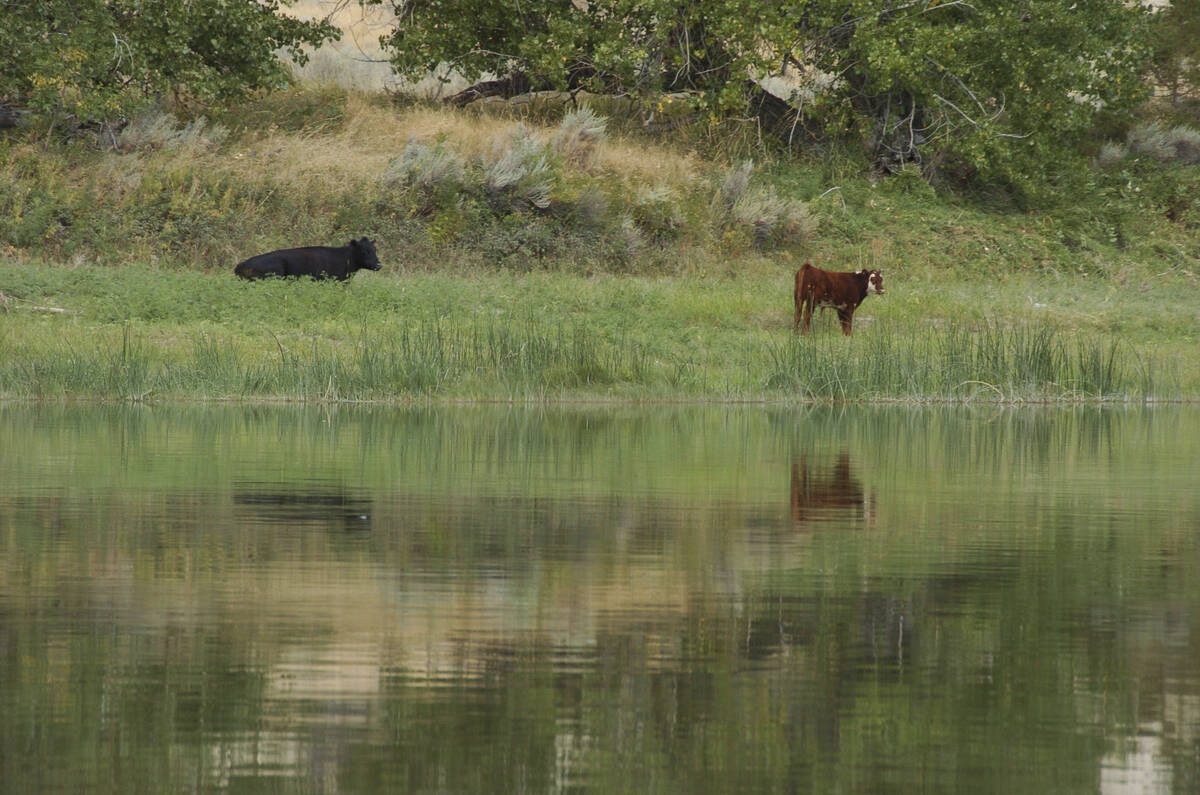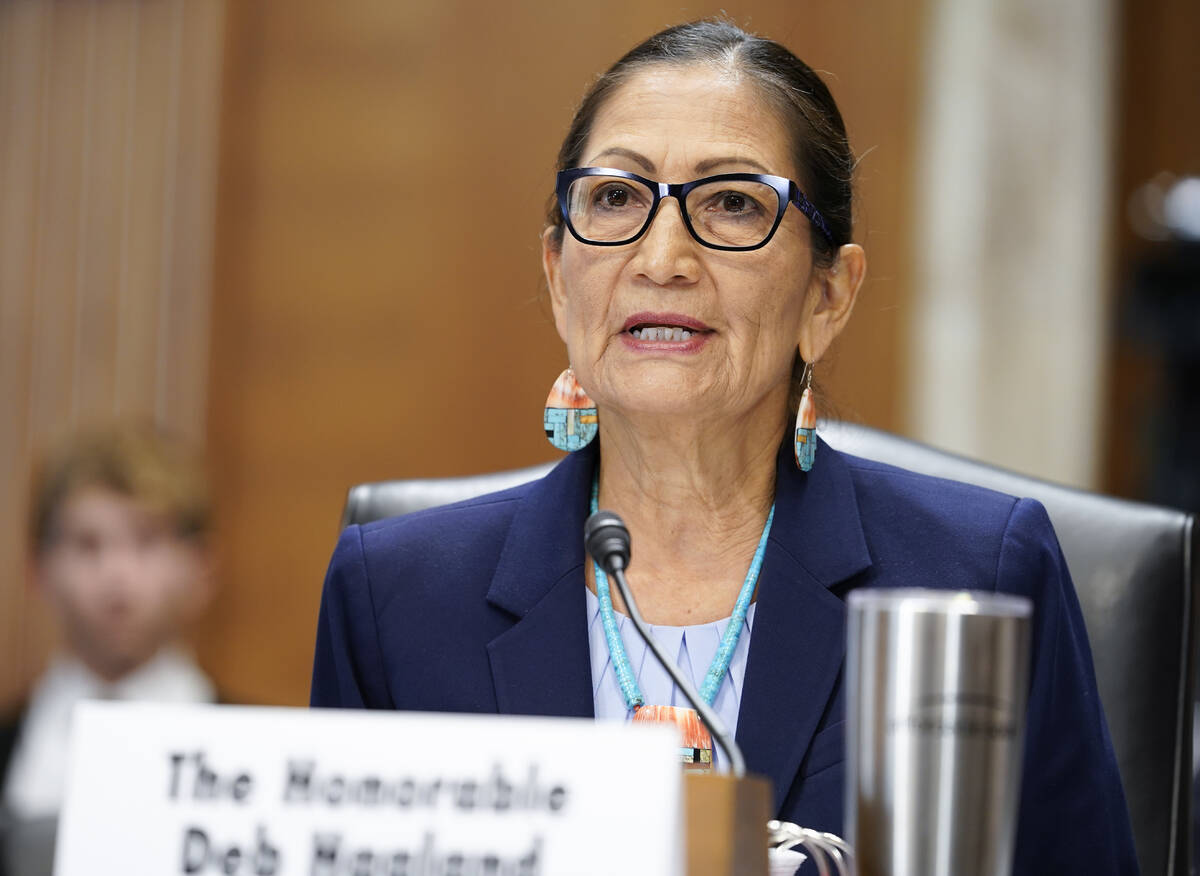Administration moves to make conservation an equal to industry on US lands
BILLINGS, Mont. — The Biden administration on Thursday finalized a new rule for public land management that’s meant to put conservation on more equal footing with oil drilling, grazing and other extractive industries on vast government-owned properties.
Officials pushed past strong opposition from private industry and Republican governors to adopt the proposal.
The rule from the Interior Department’s Bureau of Land Management — which oversees more than 380,000 square miles (990,000 square kilometers) of land, primarily in the U.S. West — will allow public property to be leased for restoration in the same way that oil companies lease land for drilling.
The rule also promotes the designation of more “areas of critical environmental concern” — a special status that can restrict development. It’s given to land with historic or cultural significance or that’s important for wildlife conservation.
The land bureau has a history of industry-friendly policies and for more than a century has sold grazing permits and oil and gas leases. In addition to its surface land holdings, the bureau regulates publicly-owned underground mineral reserves — such as coal for power plants and lithium for renewable energy — across more than 1 million square miles (2.5 million square kilometers).
Interior Secretary Deb Haaland said the changes would “restore balance” to how the U.S. government manages its public lands. The new rule continues the administration’s efforts to use science to restore habitats and guide “strategic and responsible development,” Haaland said in a statement.
But Republican lawmakers and industry representatives blasted the move as a backdoor way to exclude mining, energy development and agriculture from government acreage that’s often cheap to lease. They assert the administration is violating the “multiple use” mandate for Interior Department lands, by catapulting the “non-use” of federal lands — meaning restoration leases — to a position of prominence.
“By putting its thumb on the scales to strongly favor conservation over other uses, this rule will obstruct responsible domestic mining projects,” said National Mining Association President Rich Nolan.
Flurry of new regulations
The rule’s adoption comes amid a flurry of new regulations from the Biden administration as the Democrat seeks reelection to a second term in November.
Government agencies in recent weeks tightened vehicle emissions standards to cut greenhouse gas emissions, finalized limits on PFAS chemicals in drinking water and increased royalty rates for oil companies that drill on public lands.
About 10% of all land in the U.S. falls under the Bureau of Land Management’s jurisdiction, putting the agency at the center of arguments over how much development should be allowed on public property.
Environmentalists largely embraced the changes adopted Thursday, characterizing them as long overdue.
Trout Unlimited President Chris Wood said conservation already was part of the land bureau’s mission under the 1976 Federal Lands Policy Management Act. The new rule, he said, was “a re-statement of the obvious.”
“We are pleased to see the agency recognizing what the law already states — conservation is a vital use of our public lands,” he said.
Wyoming Sen. John Barrasso, a staunch Biden critic, on Thursday said he will introduce legislation to repeal the public lands rule. The Republican lawmaker alleged it would block access to areas that people in Wyoming depend on for mineral production, grazing and recreation.
“President Biden is allowing federal bureaucrats to destroy our way of life,” he said.
Support from the people
But Democratic Rep. Raul Grijalva of New Mexico said protecting public lands has wide support among the American people.
Oil, gas and mining companies “have had the upper hand on our public lands for too long,” Grijalva said.
Restoration leases will not be issued if they would conflict with activity already underway on a parcel of land, officials said. They also said private industry could benefit from the program, since companies could buy leases and restore that acreage to offset damage they might do to other government-owned properties.
Those leases were referred to as “conservation leases” in the agency’s original proposal last year. That was changed to “restoration leases” and “mitigation leases” in the final rule, but their purpose appears largely the same.
While the bureau previously issued leases for conservation purposes in limited cases, it has never had a dedicated program for it.
Bureau Director Tracy Stone-Manning has said the changes address the rising challenges of climate change and development. She told The Associated Press when the changes were announced last year that making conservation an “equal” to other uses would not interfere with grazing, drilling and other activities.
Former President Donald Trump tried to ramp up fossil fuel development on bureau lands, before President Joe Biden suspended new oil and gas leasing when he entered office. Biden later revived the deals to win West Virginia Democratic Sen. Joe Manchin’s support for the 2022 climate law.






















